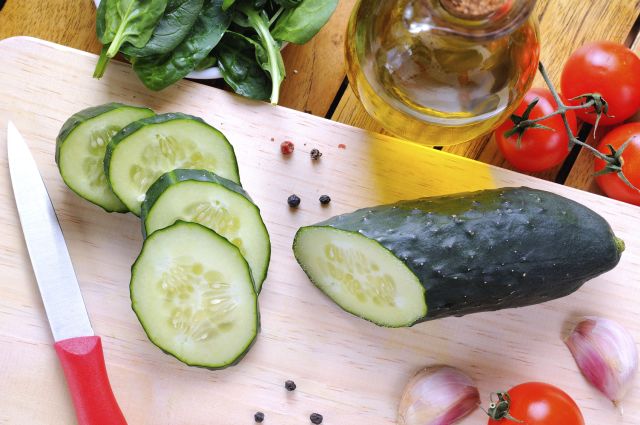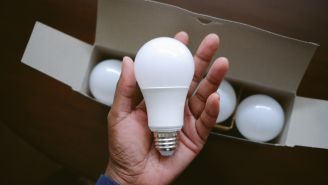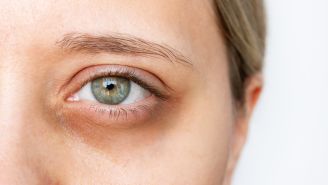Eyes can look swollen from allergies, too much partying, too much computer time, too much (or too little) sleep, or loose under-eye skin caused by heredity or aging. Whatever the cause of puffed-up peepers, here's how to deflate them fast. Just head for the kitchen and . . .
Slice a cucumber. Dermatologists aren't sure what's behind the anti-inflammatory effects of cucumbers, but here's a possible explanation: The veggies contain a combo of mild natural acids that reduce water retention. Some beauty pros say cucumbers work best when they're cold, which makes sense: Because cukes are 90% water, chilled slices are like delicate mini ice packs.
Reach for the peas. Any bag of frozen food will do, but frozen baby peas have a way of fitting into the nooks and crannies around your eyes. Put a soft cloth around the plastic package to protect your skin from the frigid surface, then chill out for 5 to 15 minutes while the cold shrinks the swelling.
Make a milk bath. Milk is a natural soother if eyes are irritated as well as puffy. "Just don't use skim milk, since it doesn't contain fat, one of milk's most soothing components," says New York dermatologist Amy Wechsler, MD. Other ingredients in milk that calm swollen skin: protein, amino acids, lactic acid, and vitamins A and D. Pour milk into a bowl of ice so it gets really cold, saturate a clean washcloth, and apply to eyes for up to 15 minutes. Soak and reapply when the cloth loses its cool.
P.S. If puffy eyes are a chronic problem, eye-shaped packs filled with gel that freezes are a worthwhile investment . . . and they don't drip.
Got dry, irritated eyes? Get help here.






